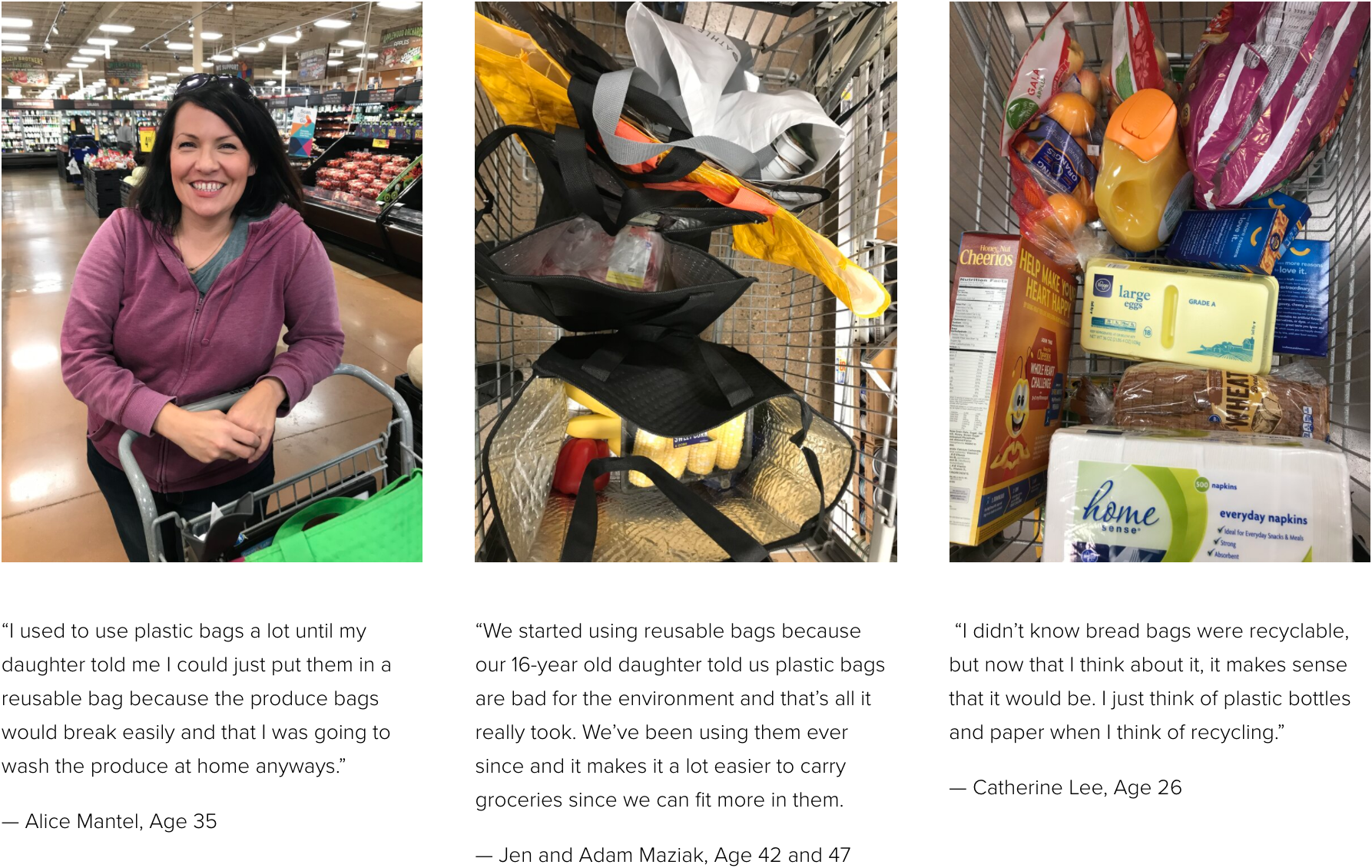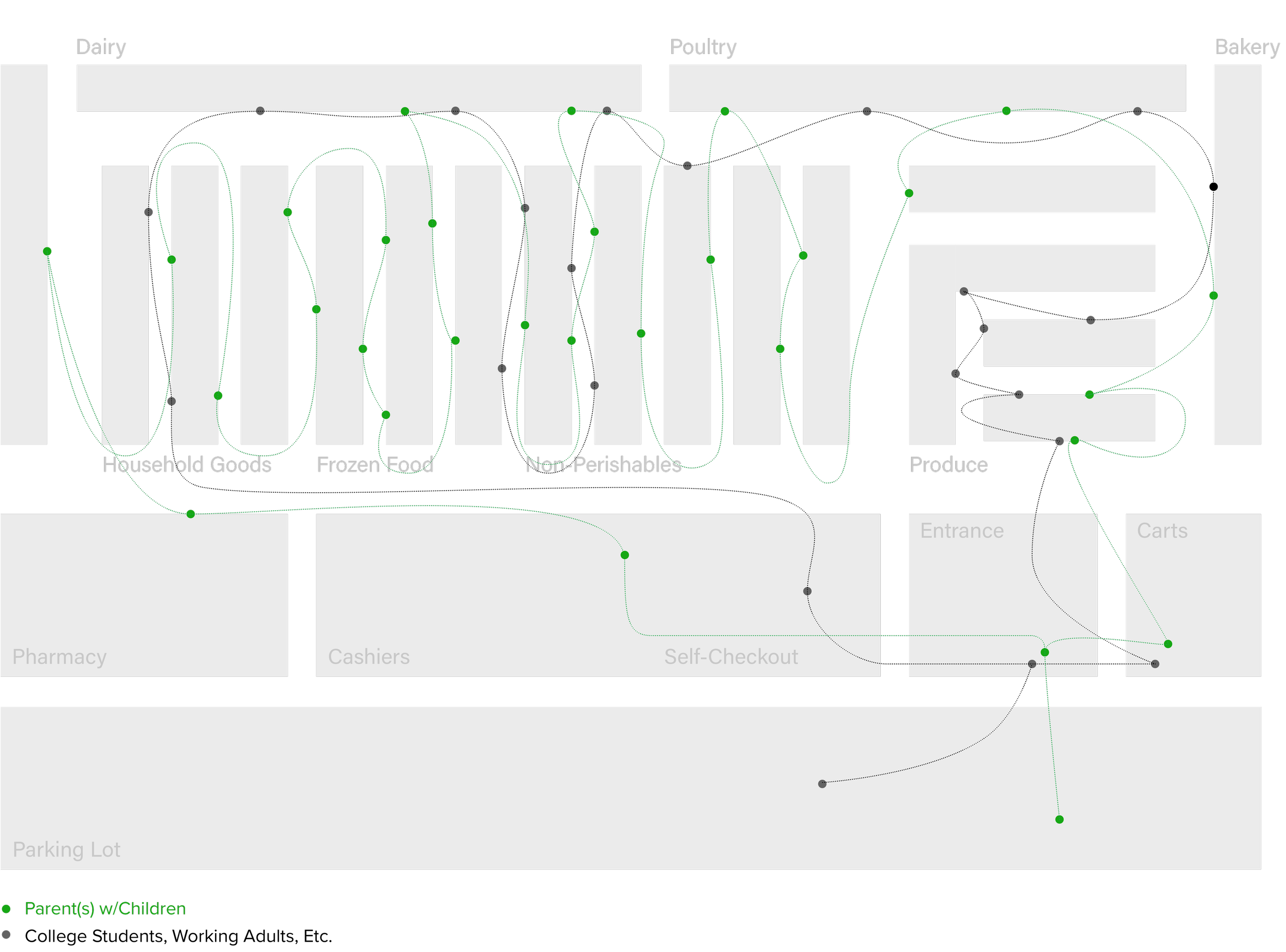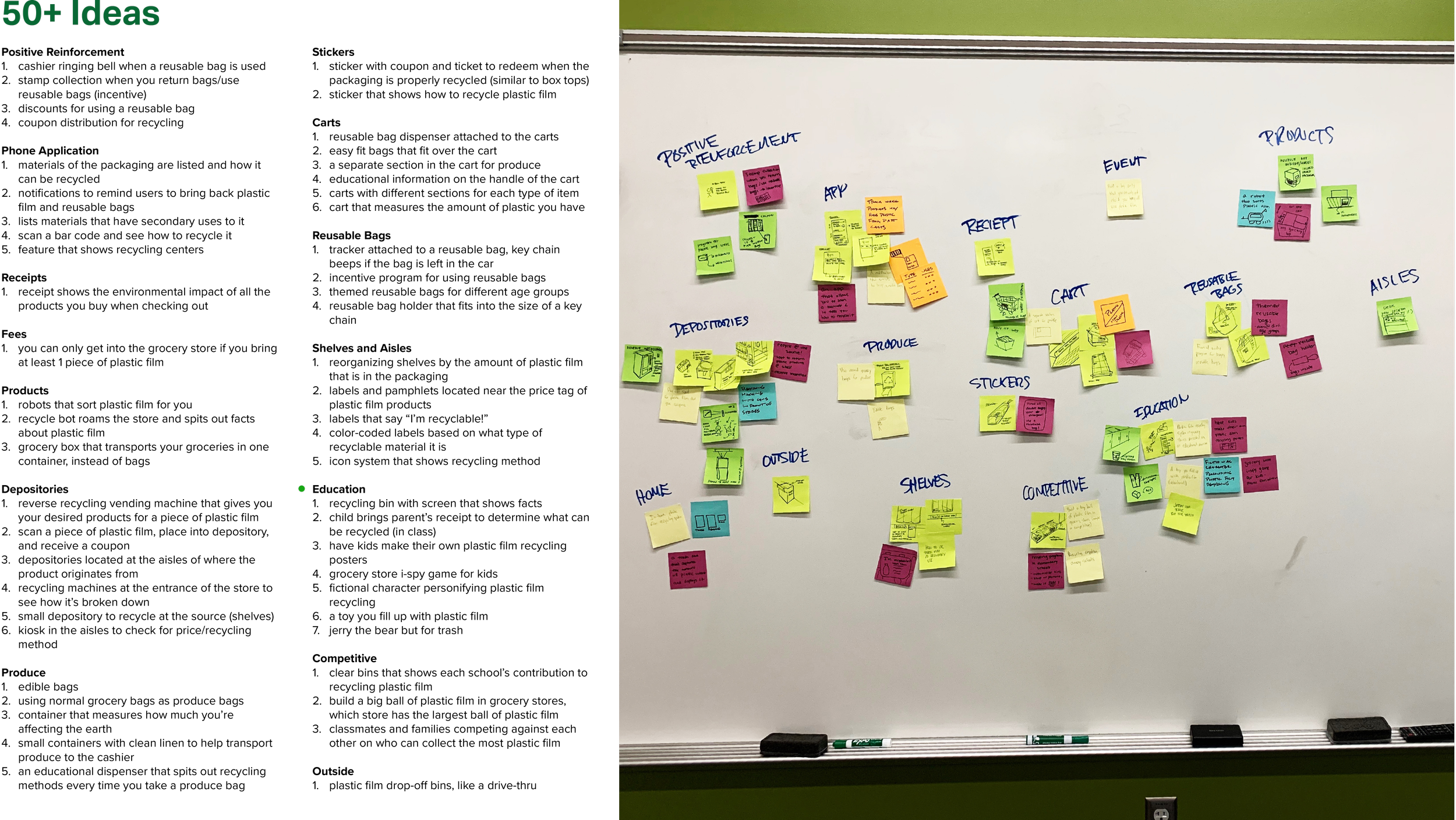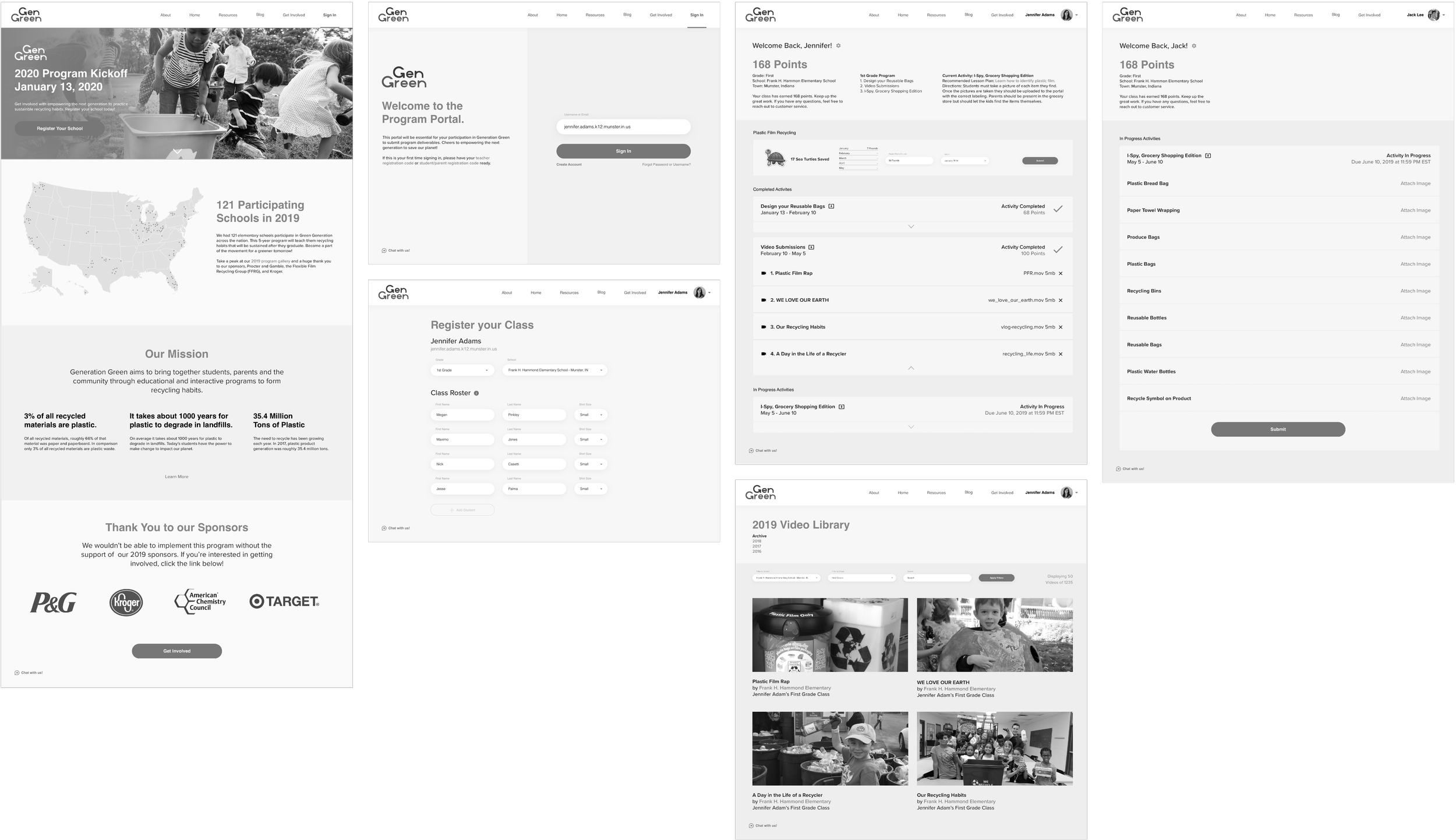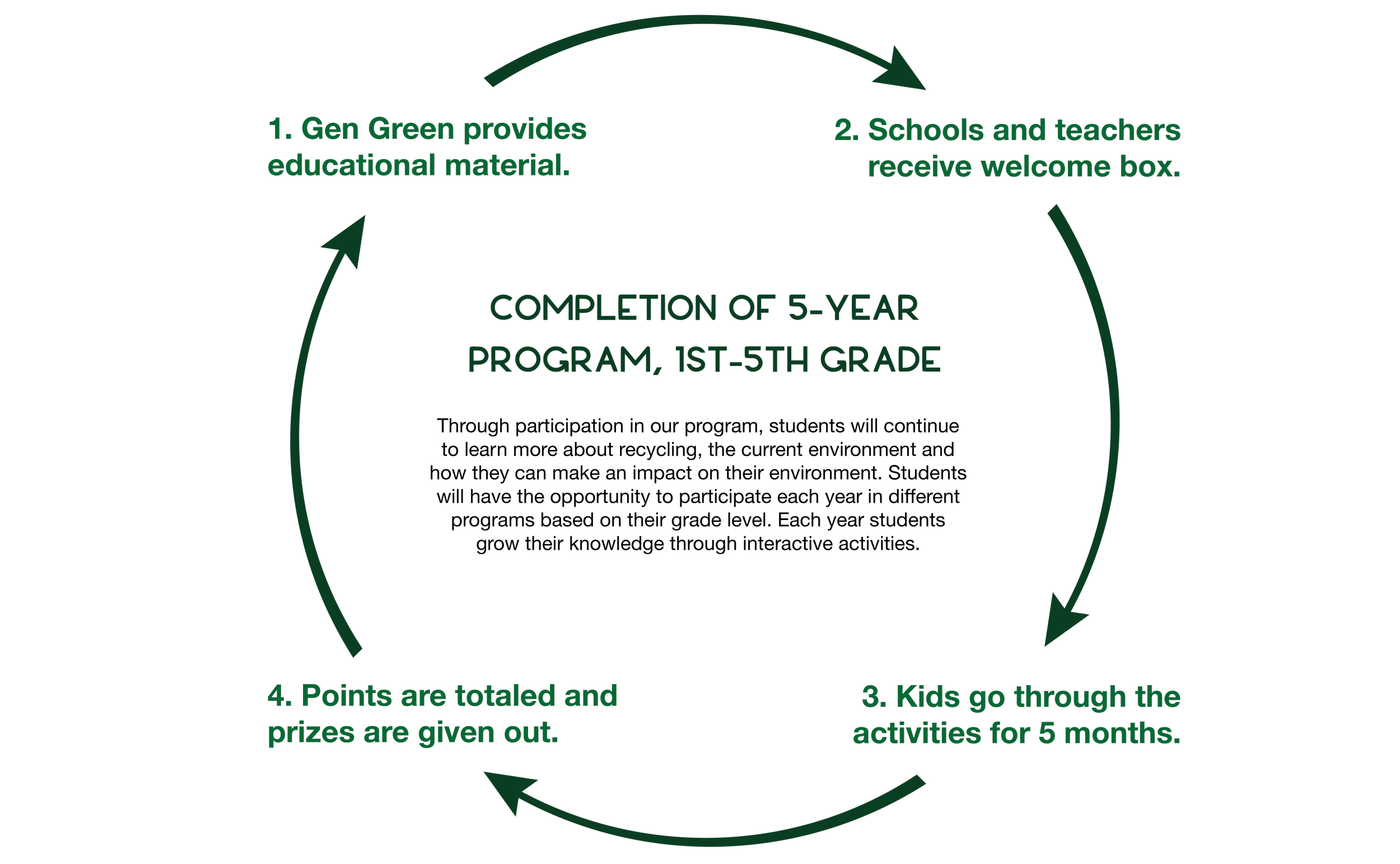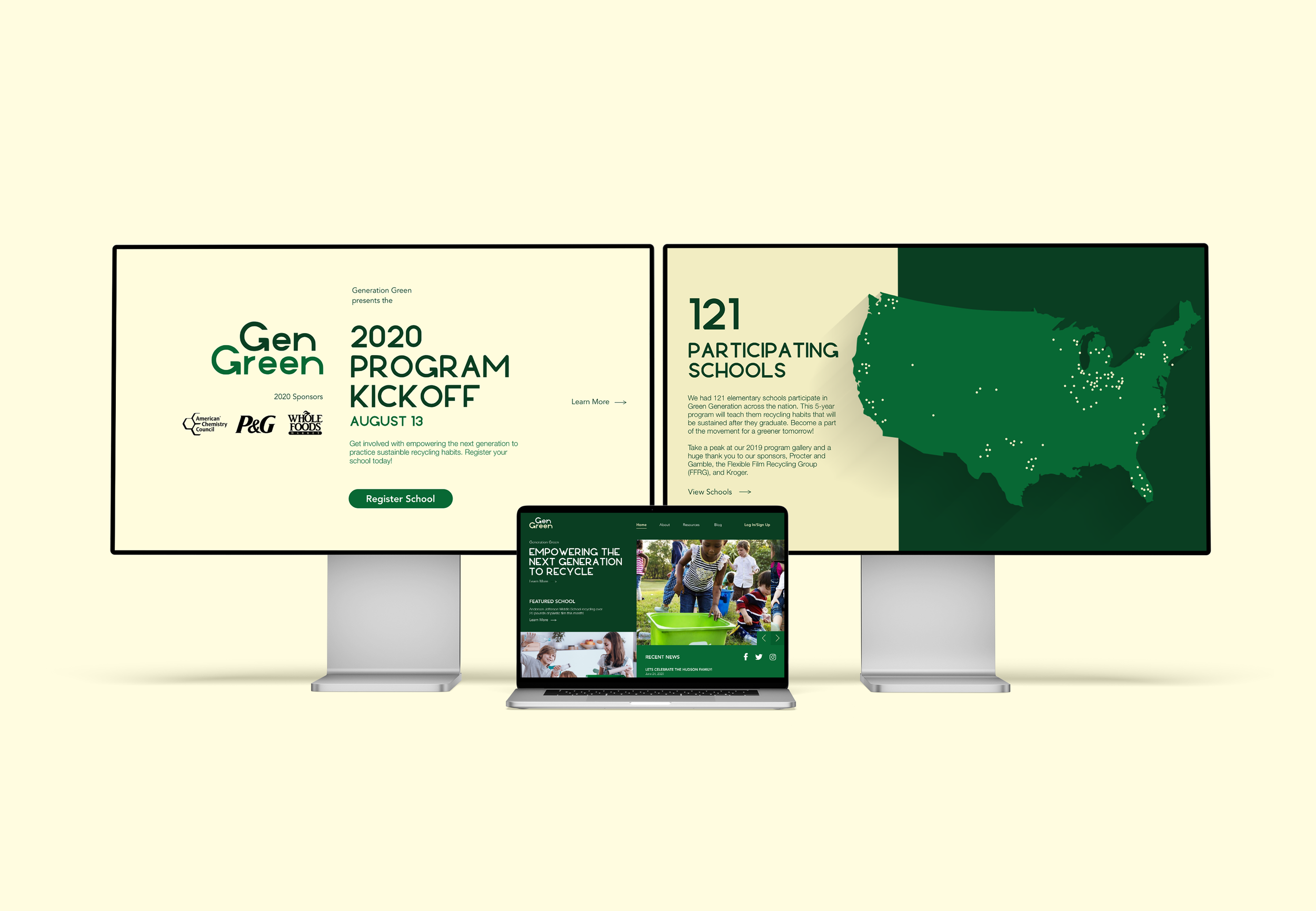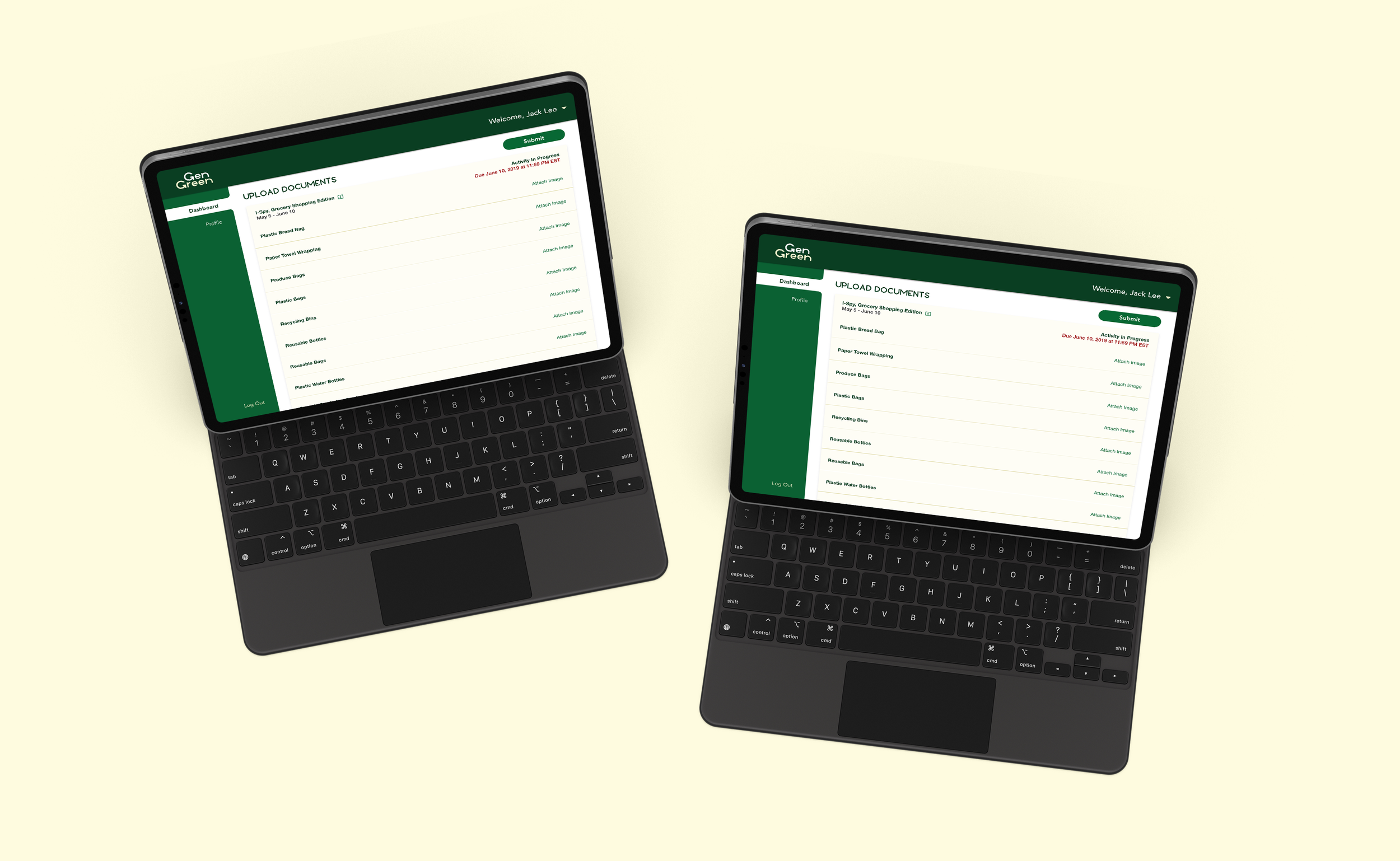Generation Green
5-Year Recycling Education Program
Generation Green is a 5-year educational program for 1st through 5th grade students. We want to empower the next generation of kids to make an impact on their environment and provide them the tools to do so. Through participation in this program, students should walk away with knowledge about what is recyclable, how to recycle and sustained recycling habits.
This project was in collaboration with Design for America, Flexible Film Recycling Group of the American Chemistry Council, and Procter and Gamble. I was the team lead and my team members were Megan Pinkley (Marketing and Management), Maximo Jones (Civil Engineering), Nick Casetti (Chemical Engineering) and Vanessa Bahk (Industrial Design).
Background
100 billion items of plastic film are used by American shoppers each year but only 12.8% of them are recycled.
Despite the existing infrastructure in place to collect plastic film, it still becomes one of the most frequent contaminants in recycling centers, landfills, and ecosystems across the nation. The information is out there, so how can we help citizens recycle plastic film more responsibly in their local communities?
Grocery Shoppers’ Knowledge on Recycling Practices
Most customers come into the store considering what they need to buy, how much they’ll spend, and how long they have to shop. With grocery shopping being a deliberate task, recycling is at the bottom of their priority list so we wanted to understand why that’s the case and their current knowledge on recycling plastic film.
We interviewed over 10 people at our local Kroger grocery store and asked them questions relating to whether they know what plastic film is, why they use reusable bags or don’t, and if they recycle or don’t and why.
Behavioral Mapping at Kroger in West Lafayette, Indiana
Individuals shopping for themselves are more likely to spend more time and get most of their groceries in the produce section and on the outside aisles of the store.
A parent shopping with her family will tend to buy non-perishables that will last longer and food/products that come in bulk packaging. They spend most of their time in the middle aisles of the store.
3 Key Insights from Primary and Secondary Research
Most individuals don’t realize that plastic film, most commonly bread bags, cannot be recycled the same way as plastic bottles, cans, cardboard, etc. are recycled. They don’t have enough knowledge nor the education to properly dispose different types of recyclable materials the correct way nor do they have the interest of doing so at the grocery store.
When it comes down to choosing sustainable recycling practices or convenience, people will almost always choose convenience. Plastic packaging on goods, especially goods that come in bulk, are often viewed simply as trash and therefore, are automatically thrown away without any further thought. Plastic packaging only has one use, similar to a plastic water bottle that everyone knows is recyclable, yet it’s commonly overlooked.
Most parent(s) started practicing sustainable recycling habits because they were influenced by their children. All it really took was for their child to tell them to not use plastic bags and to use reusable ones instead. If children were more educated about recycling plastic film, they would be able to influence and educate them while they go grocery shopping with their parents.
HCW Statement
How Can We educate children to build long lasting habits that promote recycling plastic film in grocery stores or in classrooms?
Most people over the age of 18 value convenience, time, efficiency, and minimum effort which pushes the priority of being self-conscious about recycling plastic film at the bottom of their list. Because of this, we wanted to focus our efforts at the root of the cause to help children build knowledge on recycling for their generation and future generations.
50+ Ideas
After ideation, we decided to narrow it down to the education category that is more within the realms of structured programs in a classroom setting. We thought this was the best approach because of the magnitude an education program can bring.
Prototype Testing
We tested a sample program web portal to a 3rd grade teacher. The key assumption we were testing was if teachers would be willing to support an educational program for their students, given that the resources are provided to them.
“I really enjoyed going through the platform. I feel like if students were given a fun opportunity to learn, they would take it, no doubt. I also really liked the fact that all of the supplies were given to me. It made it really easy to go through the provided activities.”
— Kelly Atkins, 3rd Grade Teacher at North Valley Middle School

Generation Green
5-Year Recycling Education Program
Educating the next generation of children to make an impact in their environment
Generation Green is a 5-year educational program for 1st through 5th grade students. Each year includes 5 months of activities where schools are able to choose their timeline. We want to empower the next generation of kids to make an impact on their environment and provide them the tools to do so. Through participation in this program, students should walk away with knowledge about what is recyclable, how to recycle and sustained recycling habits.
What problem are we solving?
As people grow older, the need for convenience is driven by habits that have been formed over the years. Our solution looks to help kids form sustainable habits early on so that recycling is no longer seen as an inconvenience to their daily lives. Kids will be able to form these habits early on in their lives as they are developing. They will be able to perform these sustainable habits without having to think much about what to do or having to reference a secondary source.
Note: All branding, wireframes and visual design are executed by me.
Partners and Sponsors
Generation Green provides teachers and students the materials they need to understand and develop sustainable habits. With partnerships from local grocery stores and sponsored organizations, students can have access to more information and activities that will allow them to develop these habits.
Elementary schools can look for information about Generation Green on their website, along with the ability to register their school to participate in the program. Every year, there will be a program kickoff at the beginning of each school year to celebrate a year of learning and to launch programs at new schools.
Welcome Box
Each teacher will receive a welcome box at the beginning of each program. In each box, the teacher will receive a booklet of programs and information, an access code to their website portal, calendar of events and other give away items.
T-shirts will be sent to their students when they complete their 1st year and when they graduate from the program.
5 Months of Activities Each Year
Students will be engaging in scheduled activities over the course of five months. Each month there will be an activity for students to participate in either individually or as a class. Worksheets and program instructions have been laid out in the teacher manual to ensure a smooth transition for teachers.
To further incentivize students, prizes will be given out based on a predetermined points system. Through completion of various programs, students will be eligible to receive points for their class. At the end of the year, each class will be awarded a prize based upon their point collection. Prizes will be aligned with the theme of the program.
Project Expo at P&G Headquarters
My team and I were honored to represent Purdue University at a project expo hosted by Procter and Gamble to present our solution to increase plastic film recycling in our community. We were joined by 4 other universities: Yale University, Case Western Reserve University, Rensselaer Polytechnic Institute and Texas State University.
